1. Kernleistungsanforderungen an eine Schneidemaschine für optische Filme
1. Schneidgenauigkeit: Optische Folien werden in High-End-Bereichen wie Displays und Linsen eingesetzt. Die Schneidgenauigkeit muss ±0,05 mm (gemäß ISO 9001) und der Kantengrat ≤ 20 μm betragen. Beispielsweise verlangt ein Materiallieferant einen Rundlauffehler von 0,01 mm für die Welle der Schneidemaschine, um sicherzustellen, dass ultradünne Folien (wie 50 μm dickes PET) unbeschädigt bleiben.
2. Materialkompatibilität: Es muss an eine Vielzahl optischer Folien angepasst werden, darunter PET (Polyester), COP (Cycloolefinpolymer) und PC (Polycarbonat) mit einer Dicke von 5–500 μm. Spezielle Beschichtungsfolien (wie z. B. blendfreie AG-Folie) erfordern, dass die Schneidemaschine mit kratzfesten Führungsrollen ausgestattet ist.
3. Spannungsregelung: Es wird ein Servosystem mit geschlossenem Regelkreis verwendet und die Spannungsschwankung wird auf ±1 % geregelt (siehe „JB/T 10920-2020 Industriestandard für Schneidemaschinen“), um eine Zugverformung der Folie zu vermeiden.
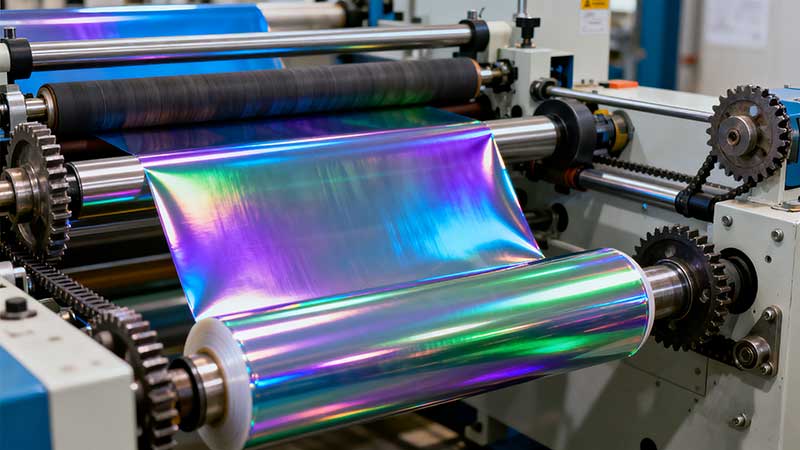
2. Gerätefunktionen und Betriebsstandards
1. Automatisierungsmöglichkeiten:
◦ Automatisches Korrektursystem: Korrekturgenauigkeit ± 0,3 mm, Reaktionszeit < 0,1 Sekunden (wie das EPC-3000-System der BST Group).
◦ Intelligente Erkennung: Ausgestattet mit einer CCD-Kamera zur Erkennung von Defekten auf der Filmoberfläche, die Defekte mit einer Genauigkeit von 0,1 mm² identifiziert.
2. Stabilitätsanforderungen:
◦ Dauerbetrieb für 24 Stunden, Temperaturdrift ≤± 1 °C, Feuchtigkeitsanpassungsfähigkeit 30 %–80 % relative Luftfeuchtigkeit (gemäß Teststandard GB/T 2423 für Industrieumgebungen).
3. Umweltschutz und Sicherheit:
◦ Geräusch ≤ 75 dB (gemessen in 1 Meter Entfernung vom Gerät);
◦ Schrottrecyclingrate ≥ 95 %, im Einklang mit der EU-RoHS-Richtlinie.
3. Auswahl- und Erweiterungsvorschläge
1. Klingenmaterial: Die Lebensdauer von Hartmetallmessern ist dreimal so hoch wie die von gewöhnlichen Stahlmessern (ca. 5000 Kilometer Folienmaterial).
2. Wartungsintervalle: Die Schmierung kritischer Komponenten (z. B. Lager) erfolgt alle 500 Stunden, mit einem Werkzeugwechselintervall von 200 Stunden (gemäß technischem Whitepaper von 3M).
(Hinweis: Die oben genannten Parameter stammen aus den technischen Handbüchern und internationalen Standards führender Unternehmen der Branche und können vom Benutzer entsprechend den tatsächlichen Produktionsanforderungen angepasst werden.) )


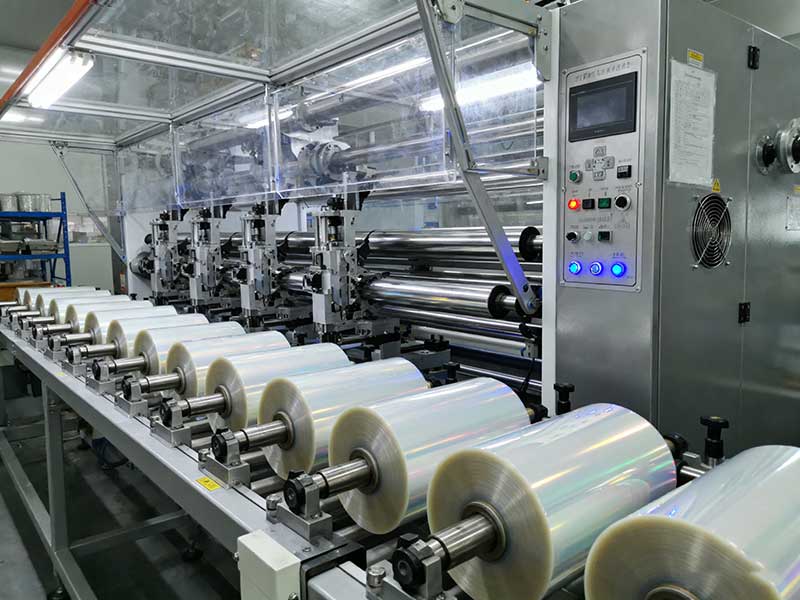
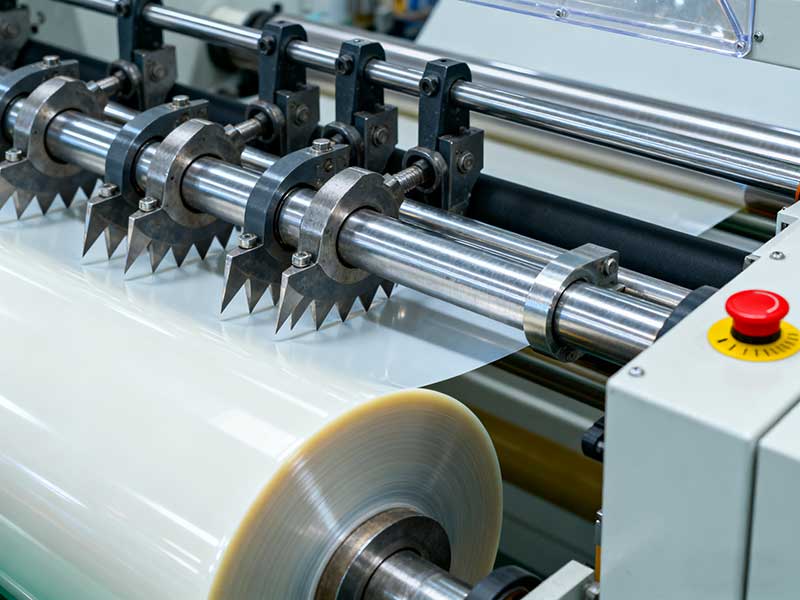
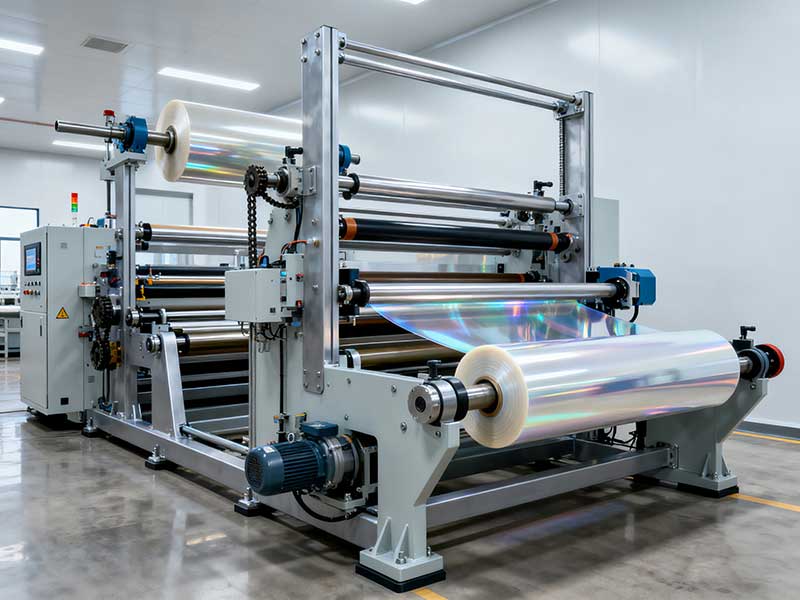
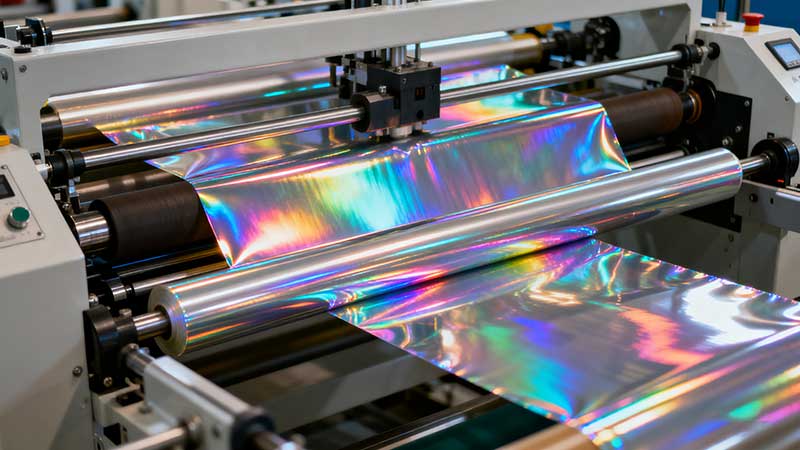
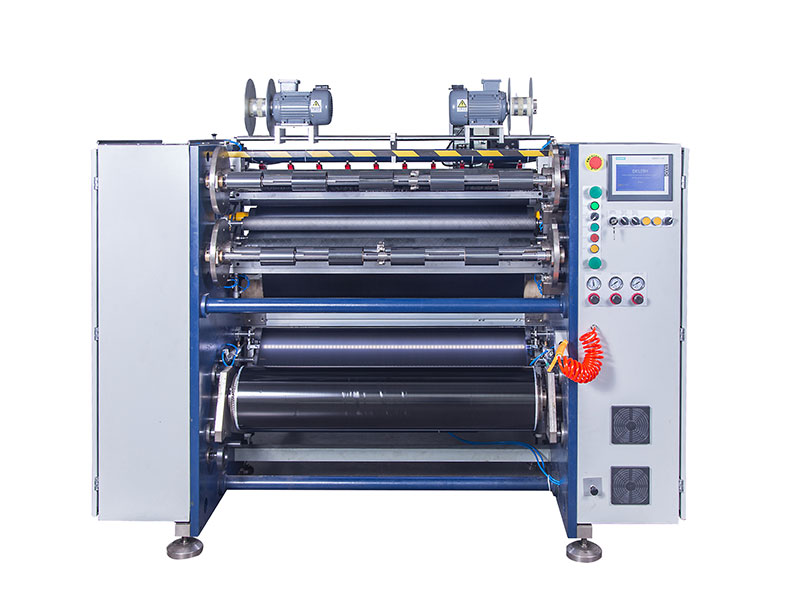 Bandschneidemaschine
Bandschneidemaschine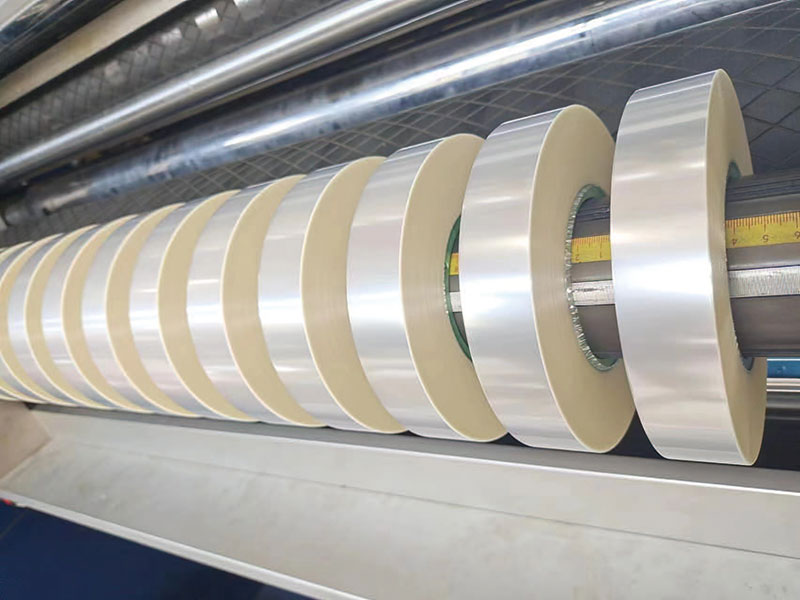 Folienschneidemaschine
Folienschneidemaschine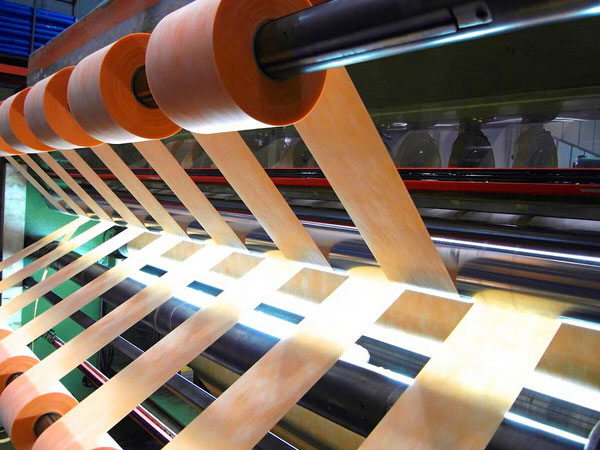 Rollenschneider
Rollenschneider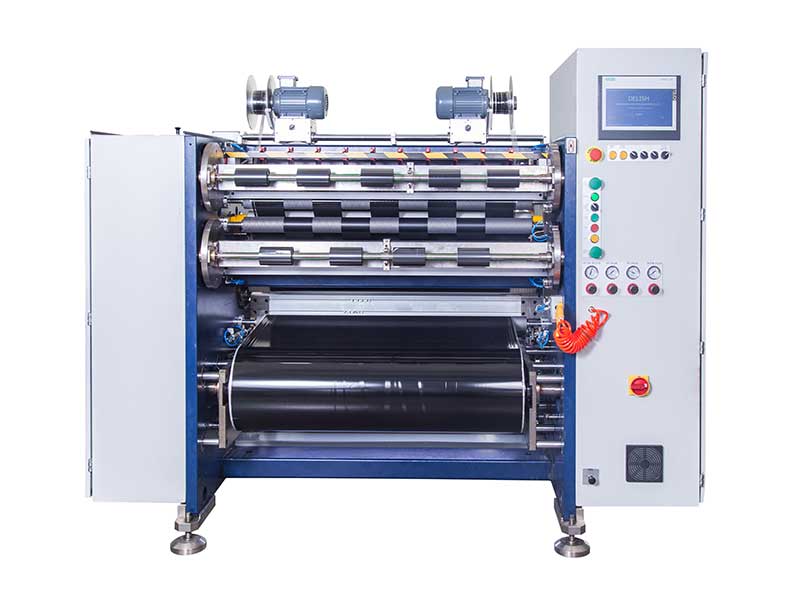 Barcode-Bandschneidemaschine
Barcode-Bandschneidemaschine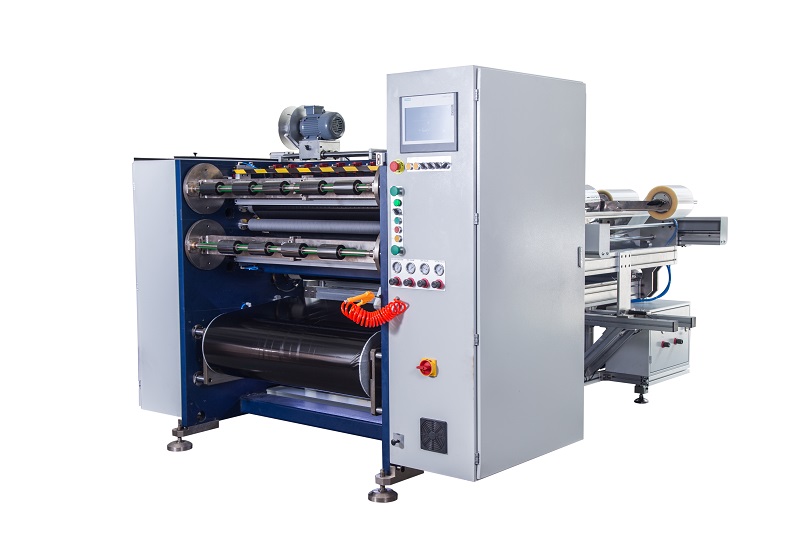 Halbautomatischer Thermotransfer-Farbbandschneider RSDS5 PLUS
Halbautomatischer Thermotransfer-Farbbandschneider RSDS5 PLUS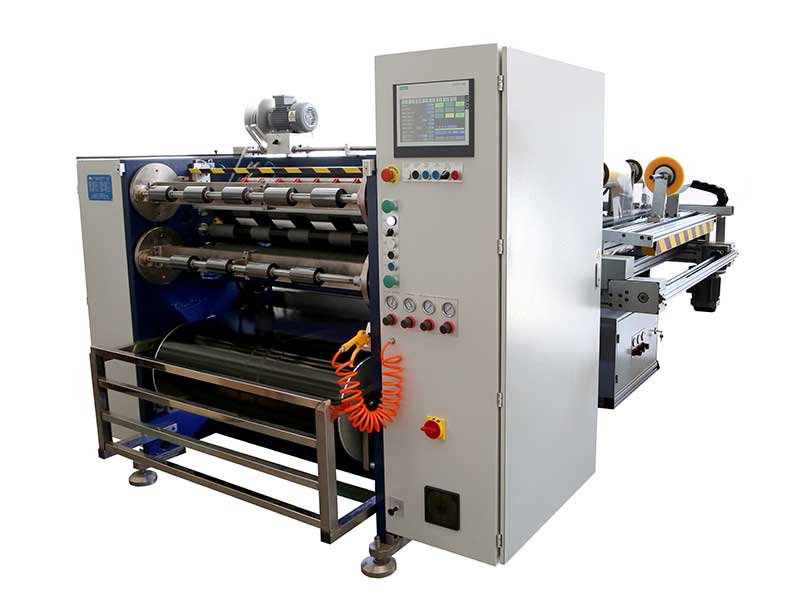 Automatischer Thermotransfer-Farbbandschneider RSDS6 PLUS
Automatischer Thermotransfer-Farbbandschneider RSDS6 PLUS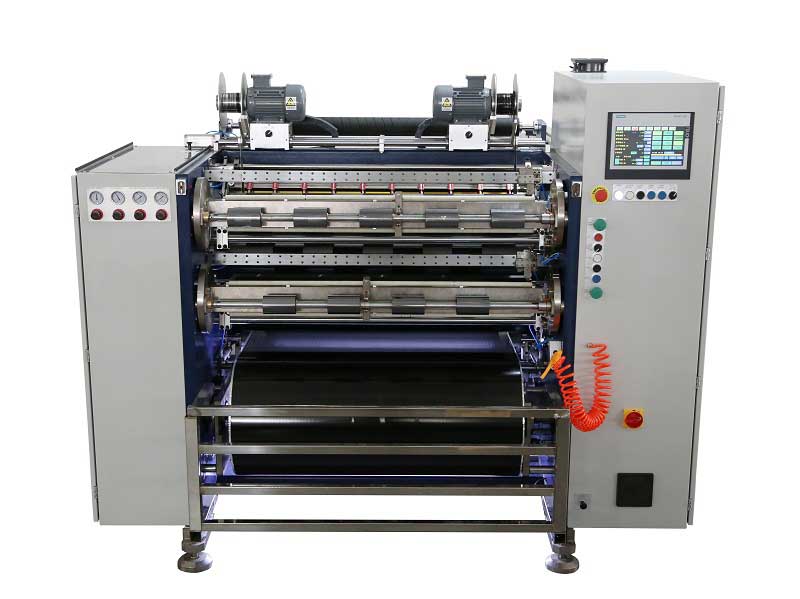 Automatischer Thermotransfer-Farbbandschneider RSDS8 H PLUS
Automatischer Thermotransfer-Farbbandschneider RSDS8 H PLUS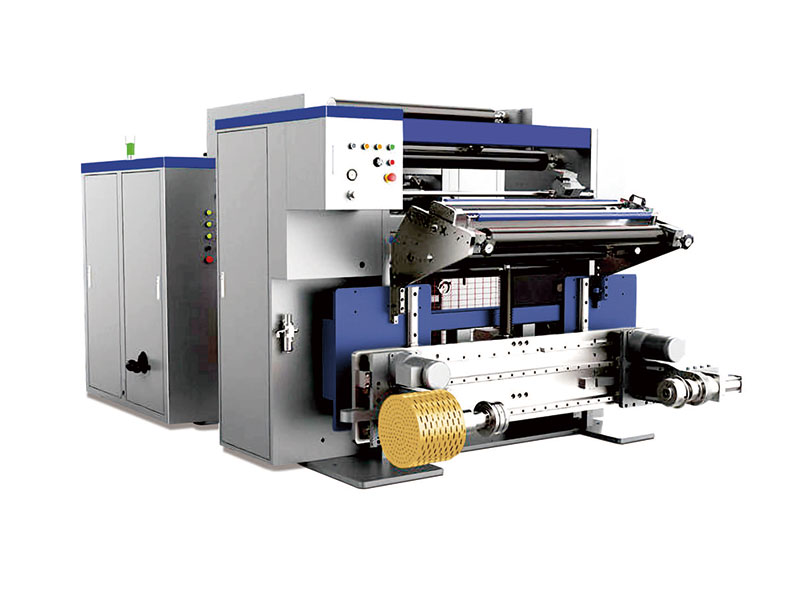 Hochgeschwindigkeits-Schneidemaschine
Hochgeschwindigkeits-Schneidemaschine





